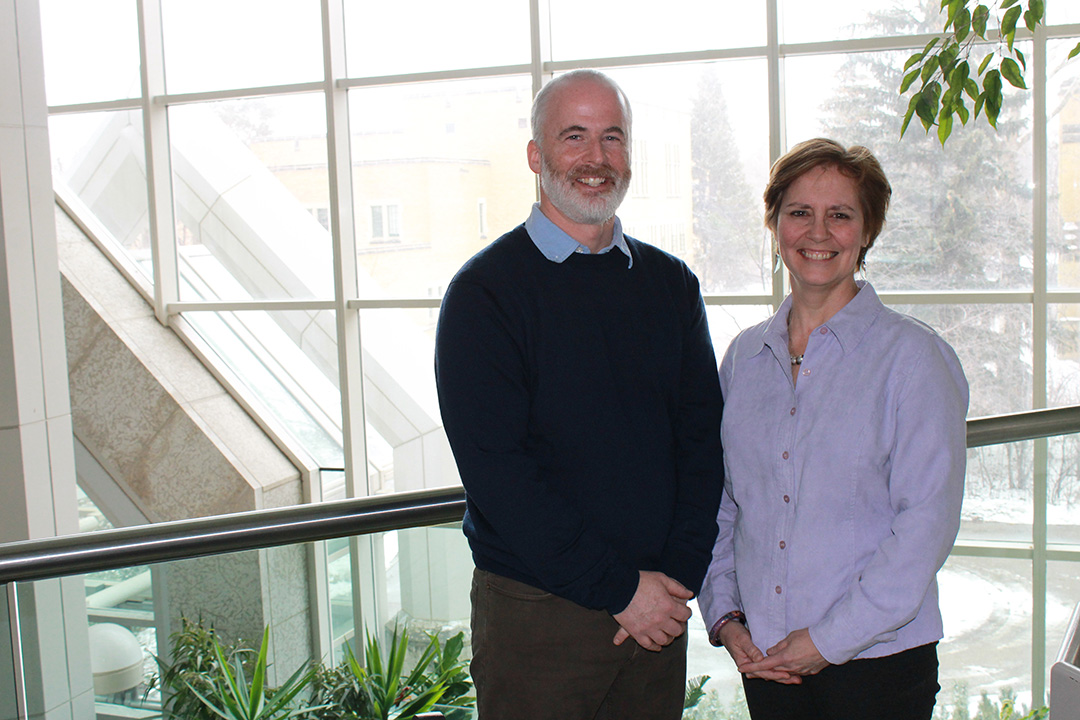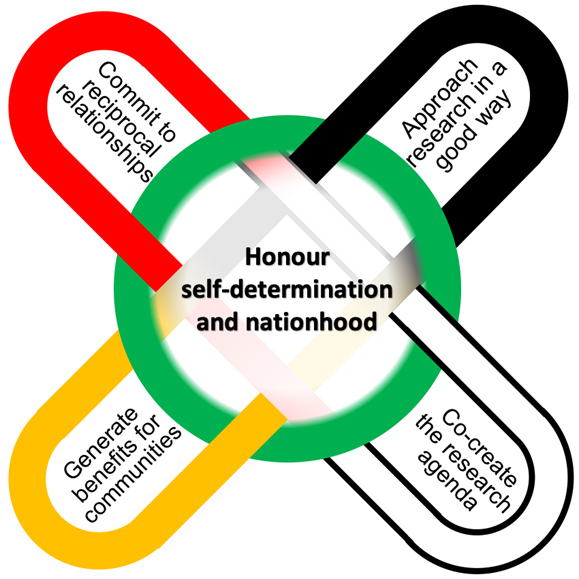
SENS researchers reaching out to Indigenous partners
Creating reciprocal relationships with Indigenous communities is an important focus for current and future research, according to a pair of internationally regarded professors in the School of Environment and Sustainability (SENS).
By Megan EvansDr. Maureen Reed (PhD) and Dr. James (Jim) Robson (PhD)—the United Nations Educational, Scientific and Cultural Organization (UNESCO) Co-Chairs in biocultural diversity, sustainability, reconciliation, and renewal, at the University of Saskatchewan (USask)—will soon publish a paper detailing an original knowledge mobilization framework focused on engagement with Indigenous Peoples.
“We are no longer at a point where research is a one-way flow, from academics to community members. As researchers and academics, we cannot assume that our approach to a question is the only approach, or that the result will be useful simply because we provide detailed data analysis to a community partner,” Robson said. “Additionally, we must be cognizant of cultural context and existing community protocols. Co-production of research planning and knowledge will enhance the relevance and employment of research results for our community partners.”
The project, a collaboration between Canada’s Social Sciences and Humanities Research Council and the Canadian Commission for UNESCO (CCUNESCO), solicited proposals across the CCUNESCO network that would facilitate engagement with its network of UNESCO Chairs in Canada and tap into their experience, reflections, and observations regarding the future of knowledge mobilization.
“This type of collaborative, respectful research can be a powerful tool for reconciliation with Indigenous peoples,” said Sébastien Goupil, secretary general of the Canadian Commission for UNESCO. “Working for and with communities presents amazing opportunities to engage with voices and types of knowledge that are not always heard by the wider research community or the public at large. The Canadian UNESCO Chairs network are leaders in this type of innovative, collaborative research that benefits multiple stakeholders and society as a whole.”
Reed and Robson’s paper, Foundational Principles for Intercultural and International Research with Indigenous and Rural Peoples: Connecting Principles to Knowledge Mobilization, is a collaboration involving the co-chairs from SENS and professors from other institutions across Canada, Argentina, Bolivia, Mexico, and South Africa as well as Indigenous and rural community partners from these countries, and several graduate students.

Describing the diagram that was created by one of the graduate students, Reed said: “At its core, the framework developed here has intentionally woven together Indigenous and western symbols to signify the weaving together of diverse cultures and worldviews through respectful, reciprocal, and longstanding collaboration. It was designed to inspire a sense of unity and learning for those working together in partnership, both in knowledge creation and sharing.”
Reed said the framework prioritizes relationships among all stakeholders as the lynchpin for every aspect of research including design, implementation, and data management. Building and nurturing relationships honours the lived experiences of community members and embeds their participation in the success of any outcome. The emphasis is on researchers and communities co-creating the research agenda, addressing how and why research is conducted, and for whom.
Additionally, the UNESCO Chair encourages funders to support research that applies similar types of principles, including support for follow-up funding.
“Funders can become more creative in their support of community-engaged research once they realize that strong research relationships don’t end once the data are analyzed,” Robson said. “That’s the intersection where analysis gets translated into action.”

